A web application to help compile, publish and annotate academic reading lists and other collections of links.
From a central interface, administrators can set up course or client-specific reading lists and collections of links. Users then annotate, comment on and tag the links to build their own curated collections.
We were approached by London Business School to think about how their academic staff presented course reading lists, and how students could best consume and share their new-found knowledge.
What followed was a research and development prototyping exercise that explored the various different ways that a corpus of links can be curated, imported, shared, annotated and classified. A rapid development-feedback cycle meant we could explore a good number of ideas despite constraints on time and budget.
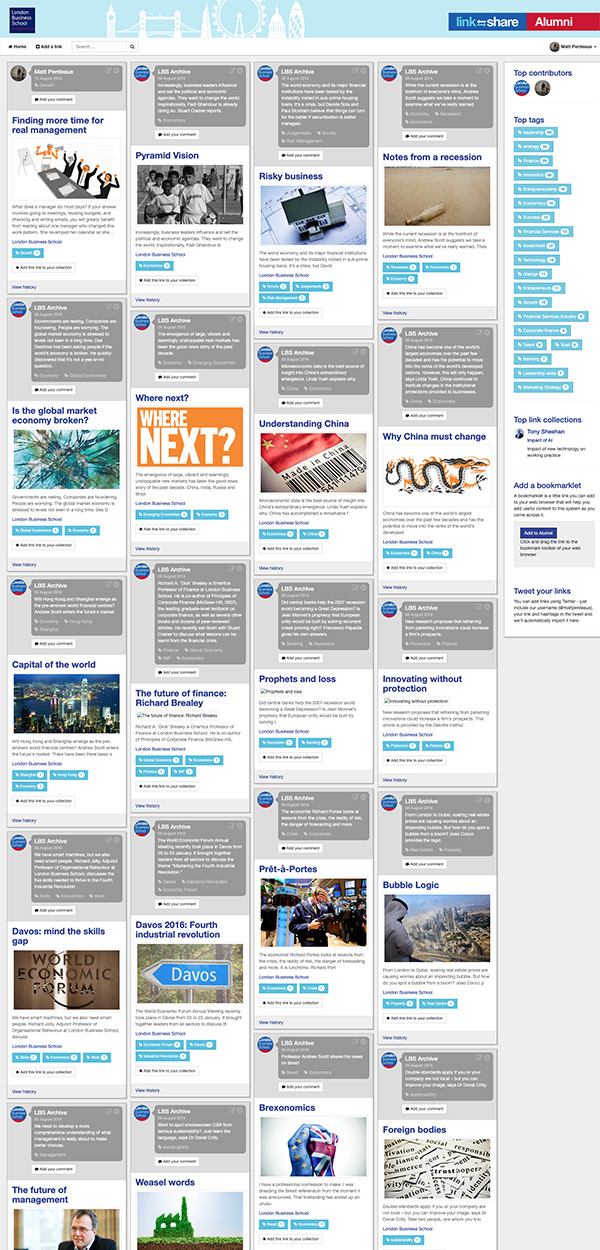
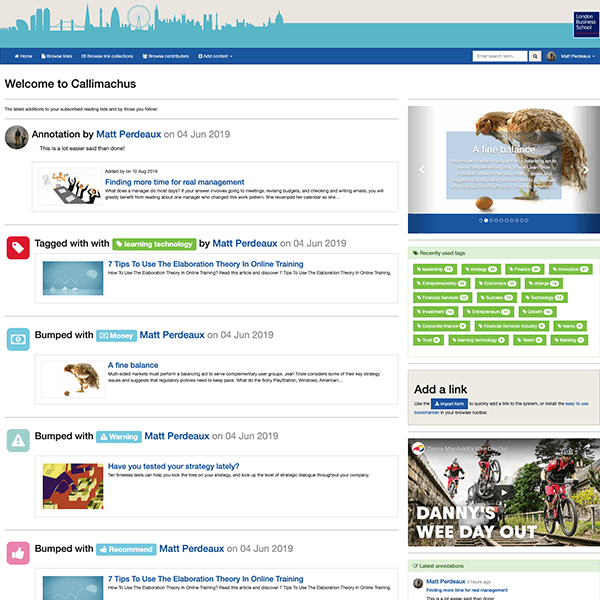
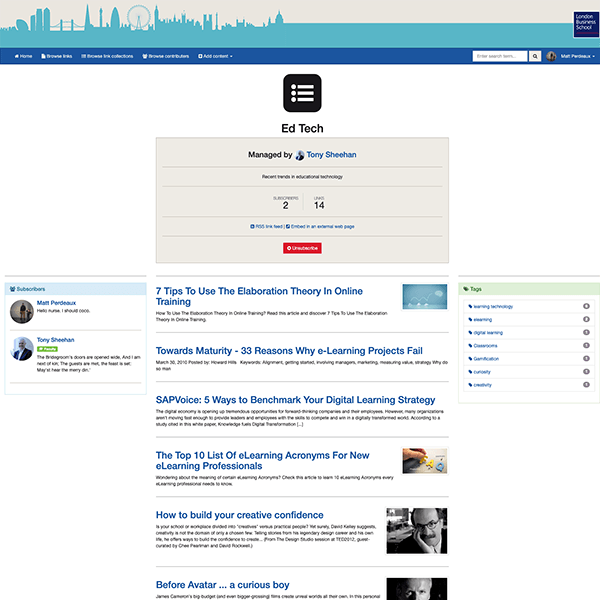
Using well-established frameworks for backend and front-end development, we were able to explore a number of functional ideas in a short space of time. The abstraction from the database layers that Django provides meant we could quickly make changes to the data model withou extensive re-coding. The Bootstrap framework gave us a palette of interaction components that meant we could assemble an interface with the minimum of fuss.
We considered a number of different ideas to assist administrators and faculty members in the setting up, curation, importing, grouping and addition of links to the system:
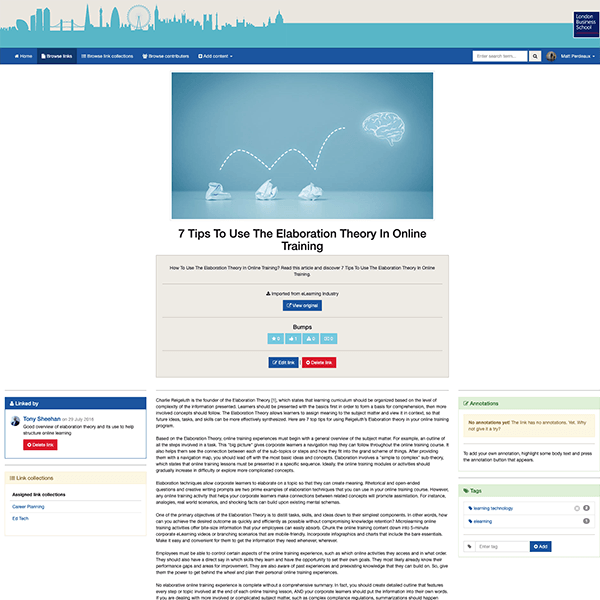
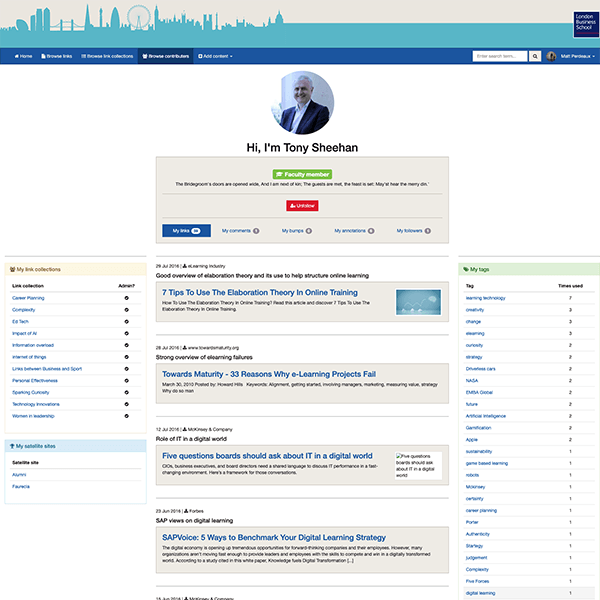
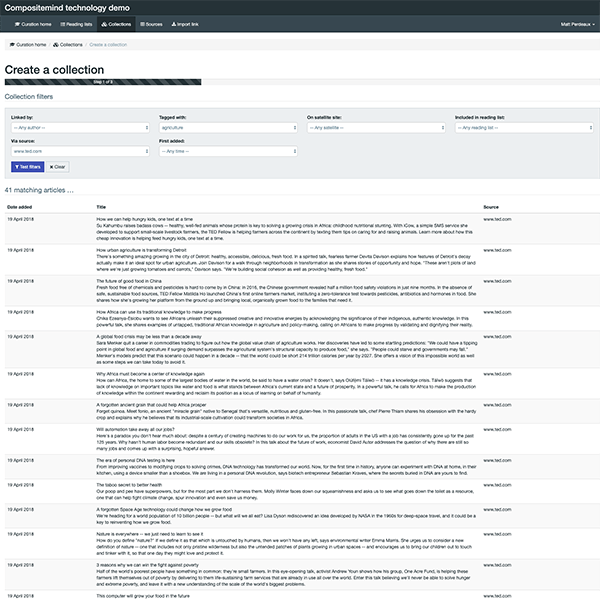
From the student/user perspective, we explored a number of different features to try to help users learn from, embellish and recall knowledge:
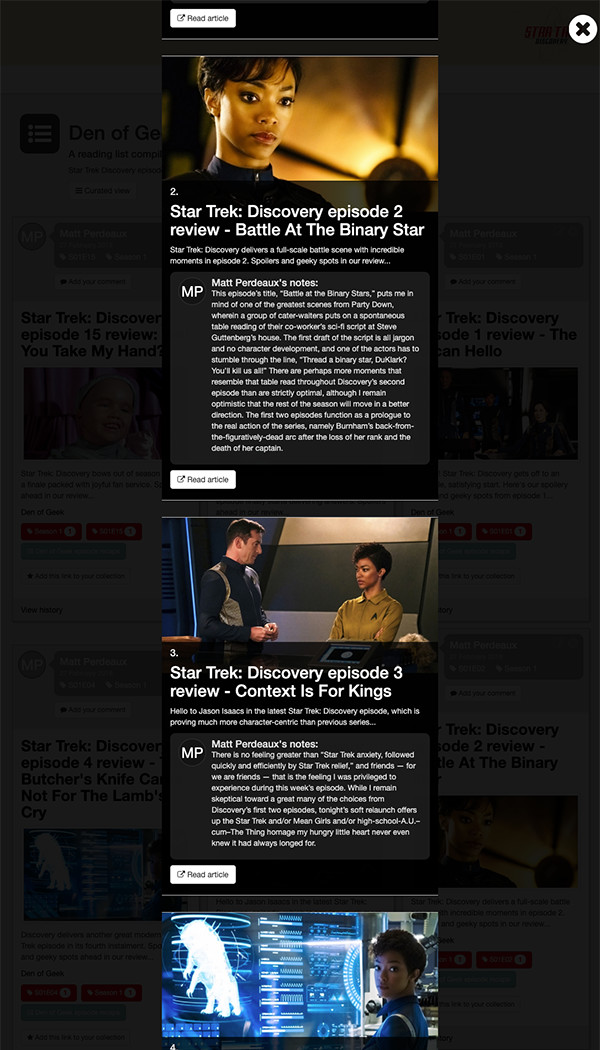
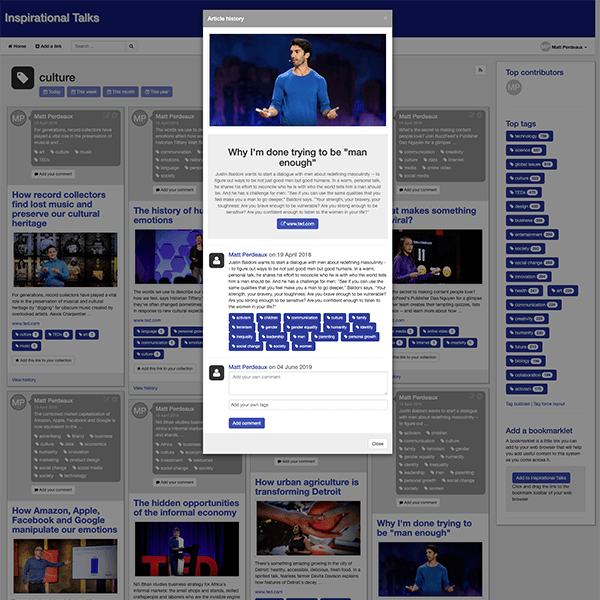
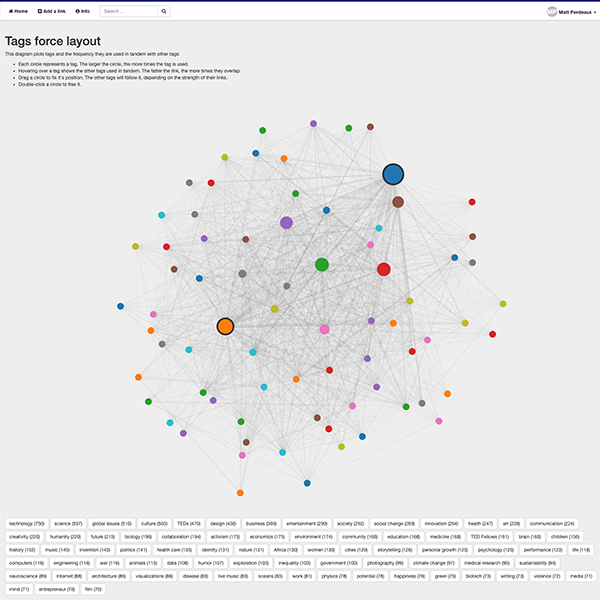
Python, Django, MySQL, Bootstrap, HTML, CSS, Javascript, D3 data visualisation, Amazon Elastic Beanstalk, Twitter API.